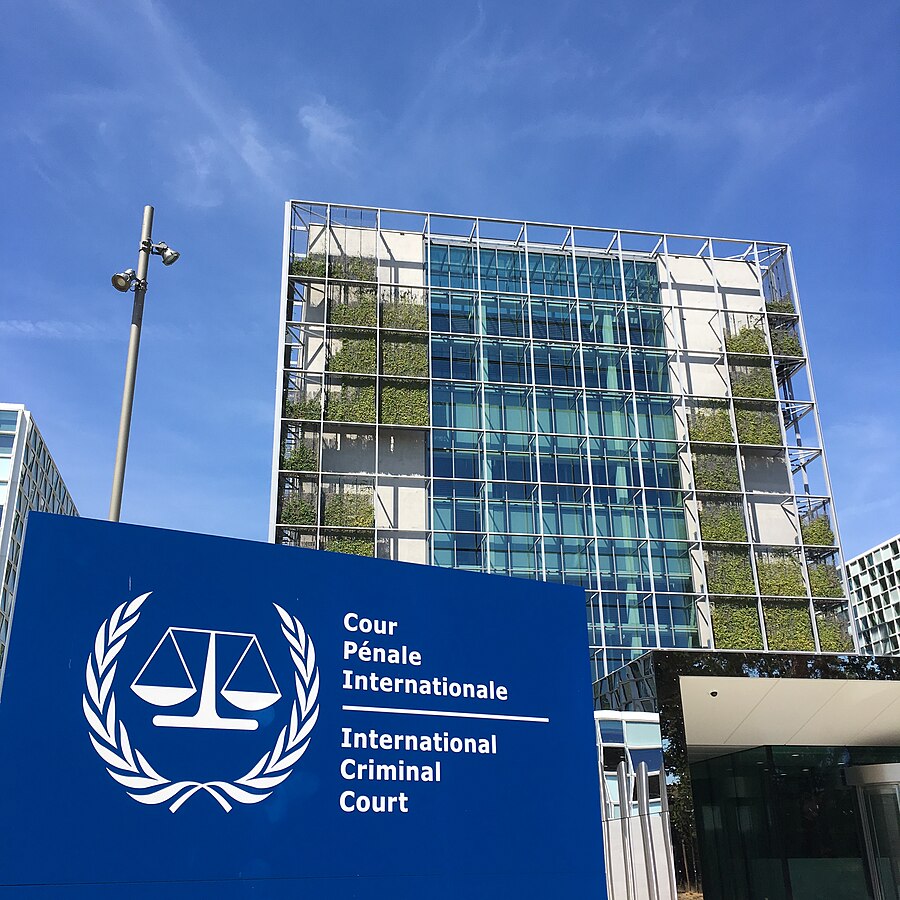Educate about
the International Criminal Court

Image courtesy of justflix is unmodified and licensed under CC BY-SA 4.0.
The International Criminal Court, located in The Hague, Netherlands, is the world’s only permanent court to prosecute individuals for perpetrating genocide, war crimes, crimes against humanity, and aggression. When the gravest atrocity crimes are committed, the International Criminal Court (ICC) takes action.
If a state is either unable or unwilling to prosecute its own citizens for their actions, the ICC addresses these crimes wherever they happen, almost anywhere in the world. Nobody is immune, not even heads of state.
Fully 123 nations of the world are parties to the ICC. The United States is not one of them.
As a member of the Coalition for the International Criminal Court (CICC) World Without Genocide advocates for U.S. support of the ICC and ratification of the Rome Statute, the founding document of the court.
Actions
1. Teach case scenarios
Our case scenarios, taken from current or recent atrocities investigated at the International Criminal Court, provide an opportunity to consider the definitions of the crimes within the Court’s jurisdiction.
- Download and review the case scenarios.
- Prepare a discussion using the guidelines in the document.
- During your session, help participants decide which crime within the Court’s mandate fits the scenario in each case.
2. Request an informational talk
World Without Genocide offers informational talks on the ICC. If you or someone you know would be interested, or has questions or comments on the court, please contact admin@worldwithoutgenocide.org.
Learn more
The International Criminal Court
On July 17, 1998, the international community adopted the Rome Statute, which established the International Criminal Court (ICC). The ICC is the world’s only permanent international criminal tribunal. It is headquartered in The Hague, Netherlands, and is charged with investigating and prosecuting genocide, crimes against humanity, war crimes, and the crime of aggression.
Key features of the ICC:
- The ICC has jurisdiction over the gravest instances of atrocity crimes and targets only the highest priority perpetrators of these crimes.
- The ICC prosecutes individuals, not organizations or governments.
- The ICC acts if the country in question is unwilling or unable to investigate or prosecute the crimes under the court’s jurisdiction.
- The ICC is not part of the UN, though the Court may work at the request of the UN Security Council.
- Cases come before the ICC if referred by a state party or by a non-state party in reference to a situation in its country; if the Office of the Prosecutor opens an investigation into atrocity crimes that occurred in the territory of a state party or committed by a national of a state party; or if the UN Security Council refers a situation.
The adoption of the Rome Statute creating the ICC was a momentous step towards ending impunity for the perpetrators of the most serious international crimes. The ICC’s work enhances a future of peace and security for the global community.
To date, 123 countries have ratified the Rome Statute.
Experts from the United States were instrumental in the drafting of the Rome Statue, which created the ICC. The US has not ratified the Rome Statute but retains a strong positive relationship with the Court on an ad hoc basis. World Without Genocide advocates for US ratification of the Rome Statute and support for the court.
International Justice Day
International Justice Day, July 17, commemorates the movement to end atrocities and prosecute individuals who perpetrate human rights abuses. This is a day to reflect upon the victims of genocide, crimes against humanity, war crimes, and the crime of aggression, and to support the international community’s continued efforts to create a more just and peaceful world.
Updated September 2023.


